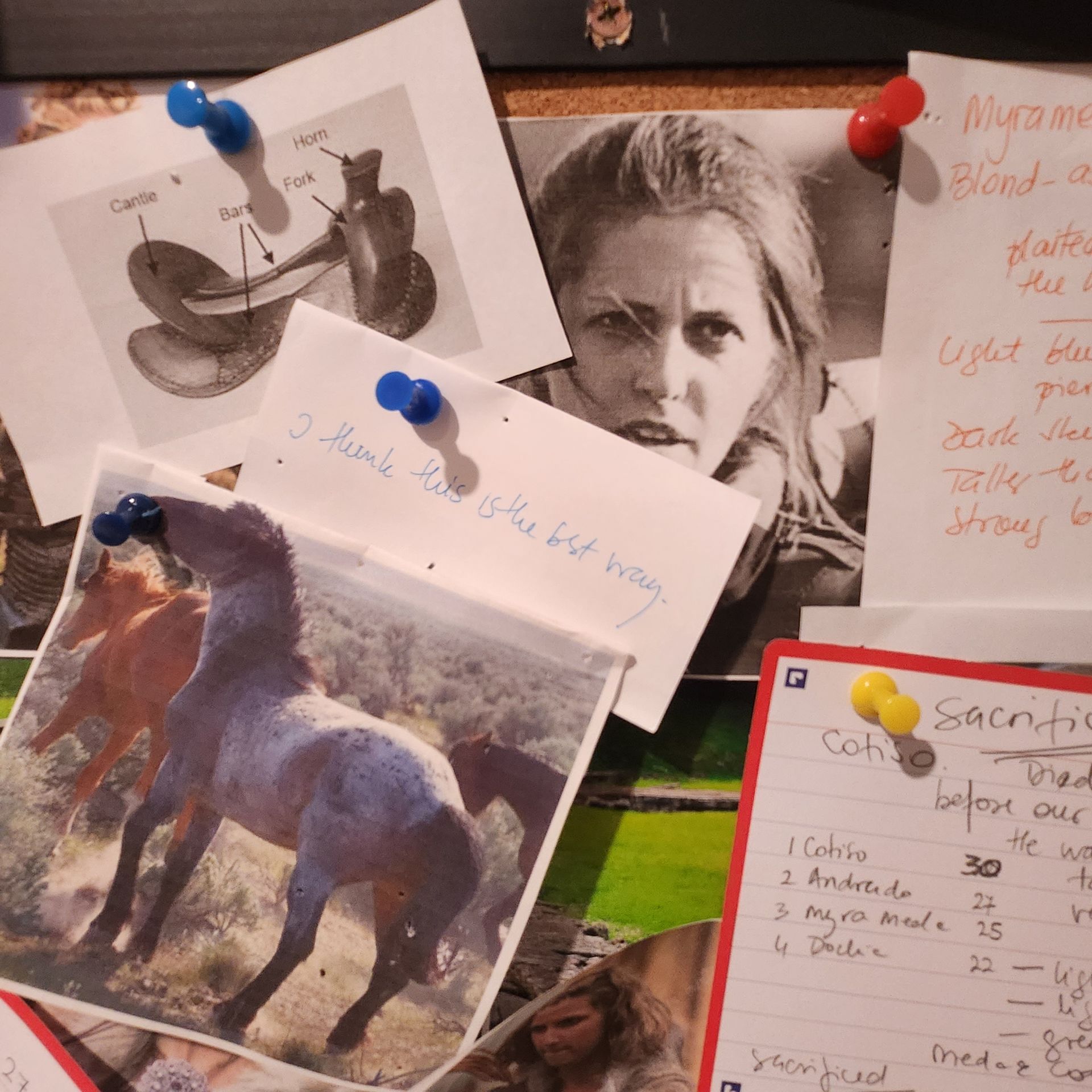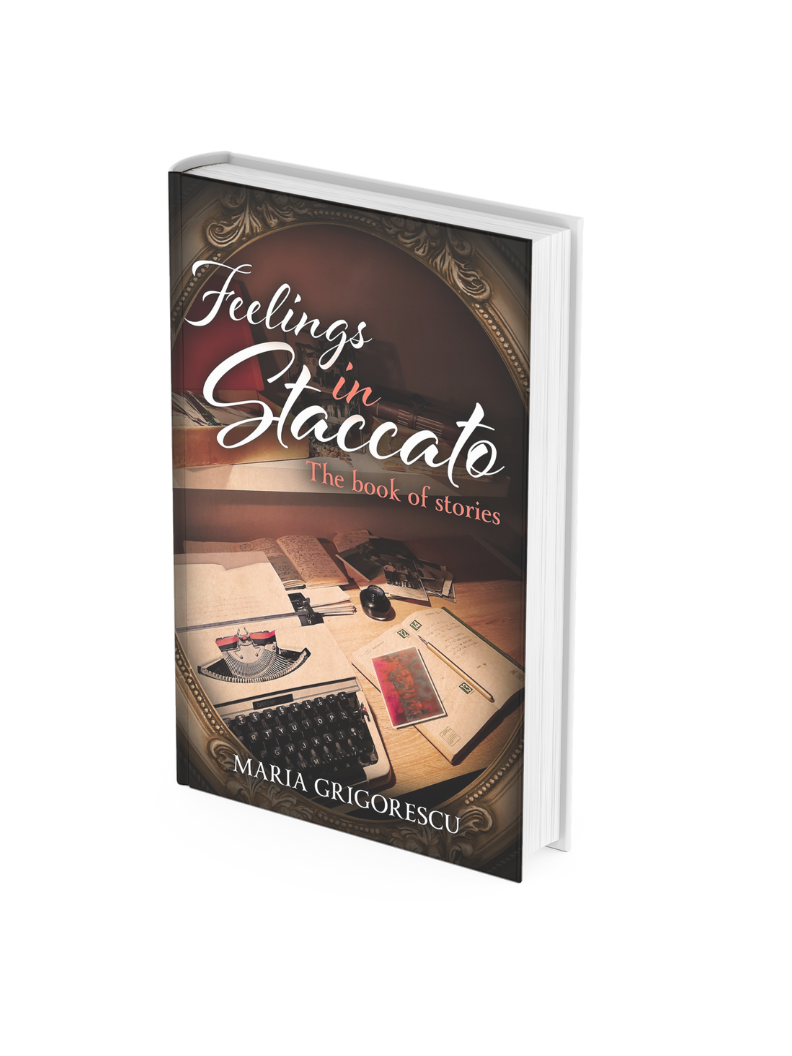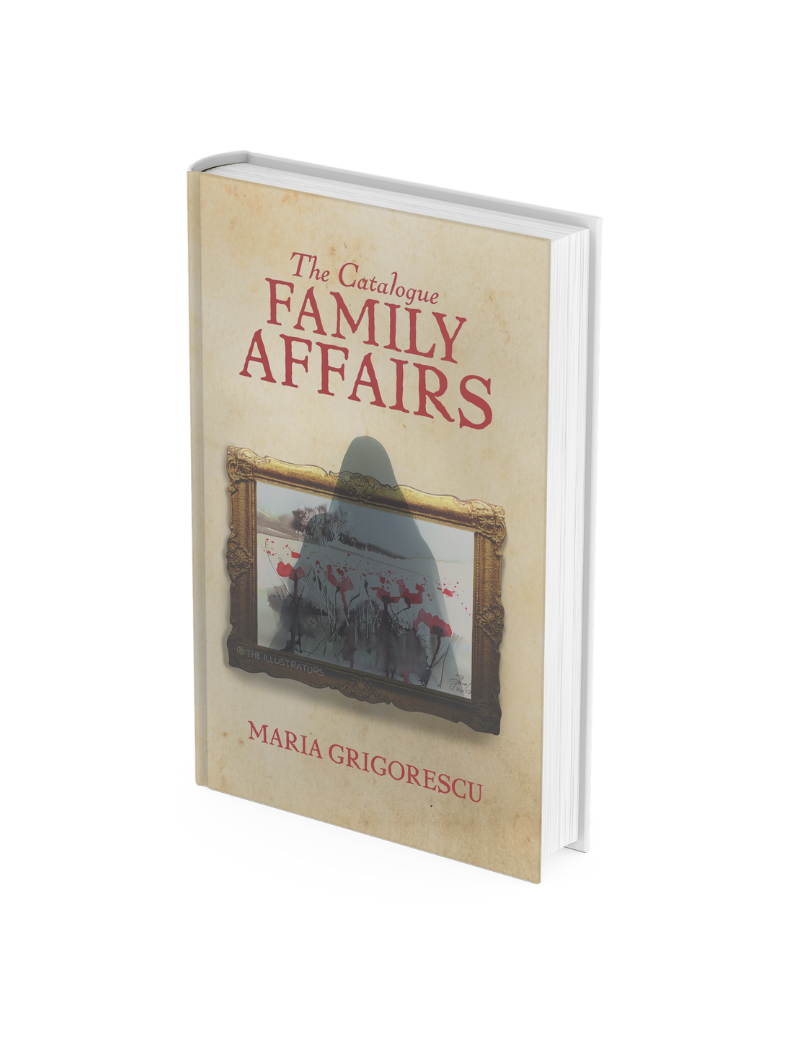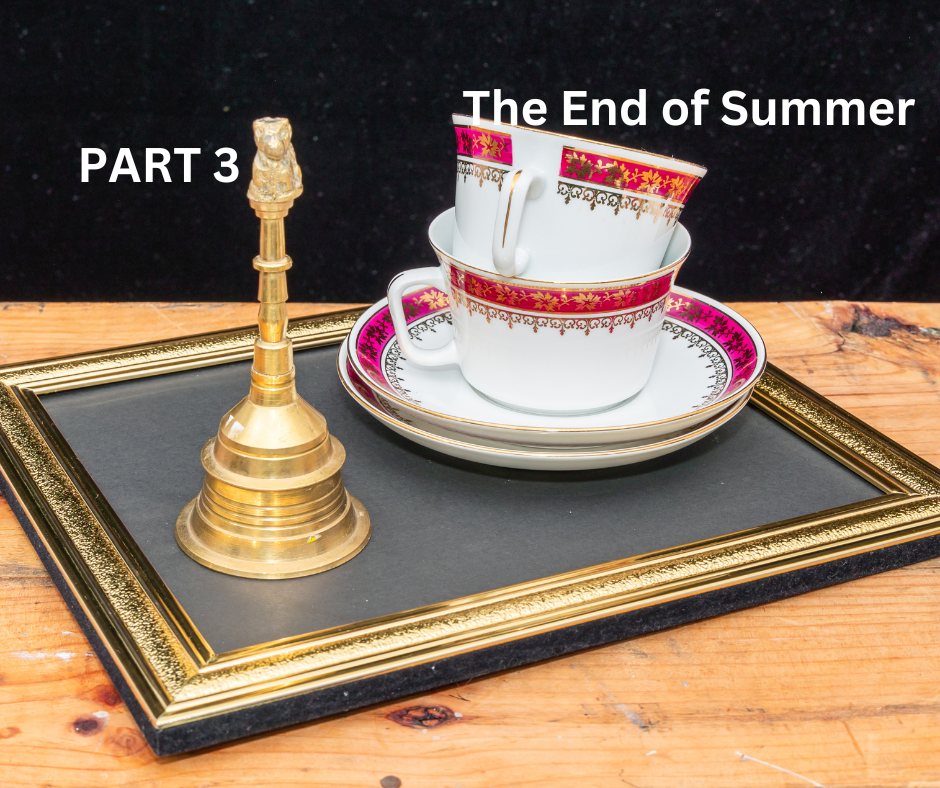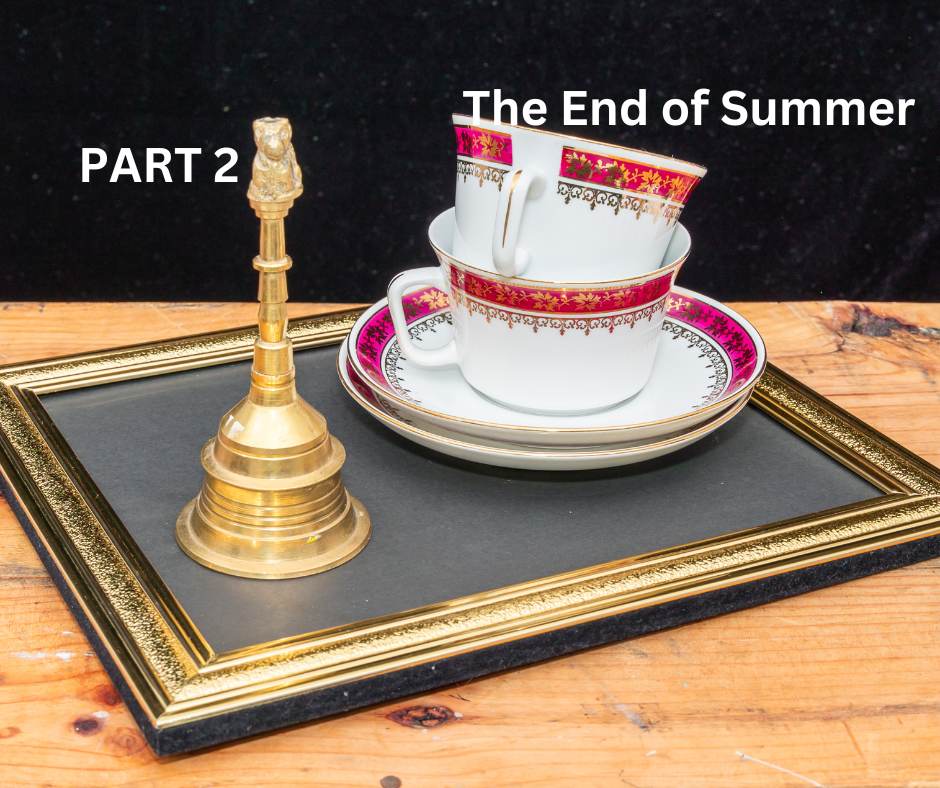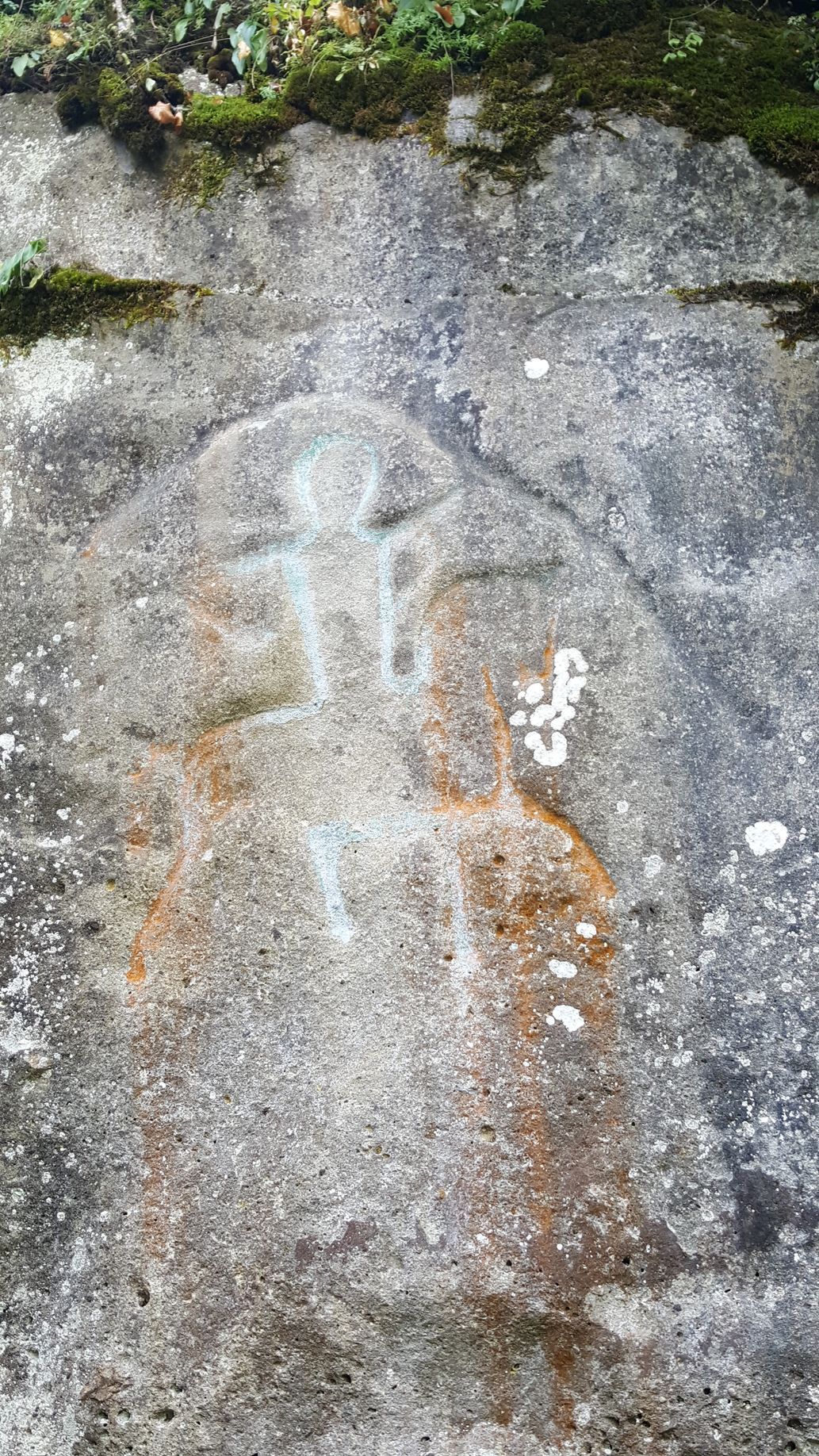When you dream for the best End of a Summer - Part 1
This is a subtitle for your new post
Life is not always a nice wallpaper with bright flowers, nor a ceiling skylight that allows you to see the night sky and millions of stars watching over you while you are asleep. You can get that wallpaper and the skylight only if you pay for them.
Otherwise, buckle up and ride it as it comes.
As a child, you dream to be someone famous, and you can also dream to be… a child.
This is what this story is about.
It was previously published with my collection of short stories Feelings in Staccato: The book of stories.
I will give it to you in three parts.
Life, memories, people, and a good chunk of imagination are bound together in this story.
The end of summer
I was about to learn how one could lose their whole life as they knew it. I was about to lose ten years. That summer I was just a bit older than ten years old. That summer was almost finished; school was supposed to start soon.
We had just returned from holiday and the servant was arranging our clothes in the wardrobe. The wardrobe was not tall, but she had to use a stool to put some clothes on the top shelf. She had to raise herself on her toes and the skin on her thick thighs stretched — dark from spending time out in the fields. The smell of her sweat was strong in the room.
I could hardly hide my excitement; they would be here any time. I left Lina there, struggling with all the suitcases and went for a wander in the other rooms.
The furniture in the living room had lost its shine under a thick lay of dust. Instantly, I knew my next chore. ‘Ala, do you really need to be told everything that needs to be done around the house? Are you blind or something?’ That would be the usual way of being asked to dust.
I stepped over the thick Persian carpet and took in the familiar things. The hand-crafted tablecloth was covered in dried petals from the roses left in the crystal vase more than a month ago. The water was long gone, and a brown smudge had dried on the vase’s side.
This was my mother’s ‘good’ room; she liked to call it a parlour. Fancy that, in a Romanian communist country, inviting friends over for coffee and tea like her heroines in the English novels, or like the rich people between the wars.
I relished the familiar look of the mismatched family heirlooms on the top shelf in the curio cabinet: a china bone cup and two saucers, two golden teaspoons, antique and ornate, and the silver plate that my great aunt had bought in Paris in 1936. The red geometrical design was faded on the hand-painted Czech coffee and tea set, a present from a big family wedding, and on the bottom shelf I saw the white dinner set with the missing dessert plate.
I was the one who broke the missing plate. It happened when we had visitors once and my duty was to clean the dishes. My mother prided herself on how strict she was with her daughter’s education, especially with the learning of the household chores. In her posh ways, my mother liked to change the plates and cutlery for every dish on the menu, and all the plates were brought into the kitchen and piled up on the table for me to wash. There were so many dishes for an eight-year-old. I nipped one plate with my elbow and down it went and into ten pieces. She was behind me in no time. Even the fact that there were guests in the house did not stop her. A quick smack on my bottom burnt like hell, and between her teeth, ‘Are you trying to ruin my evening? Break another piece and I will take out the belt.’ She had turned around and gone back to the guests with a smile and a reassuring joke. She hated that her set was incomplete, and I had created another drama in the family because that plate would be mentioned for years to come.
I touched the glass panel slightly and my face came closer until I left my breath on the glass. Right there in the back was my most precious little treasure: a tiny bell with a handle crest darkened by time. I knew by now that it had no value; my mother had told me so many times. ‘Stop ogling it. It’s just a trinket from a fair. Worth nothing!’ The little bell looked so delicate and tiny, and my neighbour had said that she recognised the crest. It was an imitation of an old boyar family crest and these bells were gifted at births. This bell was the seed of my daydreams ever since I laid eyes on it. In my dreams I liked to imagine that it was made of silver and related to my birth, that it belonged to my other parents, my other mother. I imagined that out there somewhere there was this sweet and gentle woman, a mother — my real mother — who always hugged me, kissed my cheeks, brushed my hair, read me stories in the evenings, and liked to play with me. I loved horses and I was sure that in my imaginary world, my other mother loved horses too.
I had come to the realisation that I loved the little bell mostly because my mother hated it. I mean, this mother, from the real life. She argued quite often with my father about me. ‘She has her nose in those books all day long. She must learn how to keep a house, to cook and clean and do gardening. What will those stories give her in life?’ My father disagreed; he wanted me to read. She was also against extra school activities. ‘Why do you need choir or guitar lessons? You only do it so that you can stay out late.’ Last summer I had spent long hours learning how to iron a man’s shirt; no creases were allowed. ‘You are so lazy. You refuse to learn, and this is why you cannot do it right. And you are disrespectful.’ She did not have the patience to teach me, and the iron felt too heavy. I ironed some shirts several times. I did master it in the end, but after how much shouting? In turn, my father fought for me to keep my books — my excessive reading was never discussed again — and I could learn the guitar. It felt like a victory.
One day I came home from school and found my mother sobbing in her room. My brother told me that she had wanted to throw away my bell, but my father had got mad and said some bad words. Apparently, he had also threatened to cut off her allowance. My tiny bell — the same as me — could create such big problems.
I wanted to slide the heavy glass door of the display case, but my palms would leave marks in the dust. Instead, I just looked at it and felt content that it was still there. When we did the cleaning, I would be able to take it out and feel its warmth, closing my fist around the inscriptions.
‘Ala, where are you? Come and help me with the shoes.’ Lina’s rough voice seemed muffled in the parlour room with its shut curtains, but I followed the order and went to help her.
I loaded pairs of sneakers and sandals on one arm and headed to the dark hall where a tall shelf covered an entire wall. Lina was humming her folk song about a young girl crossing the river to see her lover.
Once finished, I ran out before Lina — now busy in the kitchen — would have the chance to ask me to do something else. I was lost in my daydreams. My mother would come out of the car, tanned, and smiling, probably wearing a fancy summer hat with a ribbon, and she would open her arms. I would bury my face in her neck and smell the soap and cream on her soft skin.
‘Ala, you are back!’ The shrill call snapped me out of my daydreams. It was my friend Amelia, with a few blond curls coming out from behind her red scarf. ‘Come out and play with us.’ She carried a huge purse on her arm and on her feet a pair of oversized scuffed high heeled sandals. She came into the small garden.
‘I think you’d better wash your face.’
Her blue eyes opened wide, and she covered her mouth with the back of her hand.
‘Can you still see it?’
‘Yes. There are smudges of lipstick and green eyeshadow.’
She limped next door in a hurry, losing one of her grown-up shoes on the way.
I was immediately surrounded by the children in the courtyard. All the voices were excited to see me, coming closer to touch my hand and asking questions at the same time.
‘Are you back now? When are your parents coming home? Did you go fishing with your grandfather? Do you know any new games?’
Gabriella, Amelia’s younger sister, grabbed my elbow.
‘Do you have to clean? Or can you come out and play?’
She had the same blue eyes as her sister, but her hair was a few shades darker. She pouted and the freckles seemed to come together around her nose. All her face was round: round eyes, nose like a button and a face like a moon. She was the cutest child in our neighbourhood and the youngest one.
‘Come on, come and play with us.’
‘Where is your house?’
‘In your shed.’
‘What? Are you crazy? Gabriella, my parents are coming home today. You cannot make your house there.’
‘They only need the garage to put the car in. Your father won’t mind if we play in the shed.’
‘Yeah, but you do not know if my mother is in a bad mood. No, sorry, we cannot play today.’
I did not want my mother to get annoyed with the children playing in the shed, especially the sisters. I had heard her a few times complaining to my father. ‘Girls can only bring problems. They are nasty. You need to watch them all the time, and when they grow up you must always watch out for their honour. I don’t like them playing with Ala.’
I was in the kitchen washing glasses when I heard the car. Amelia peeked from outside through the curtains with a hard whisper.
‘They are here!’
❤❤︎❤︎
Thank you for reading. See you next time for Part 2.
Share this post with friends and family
